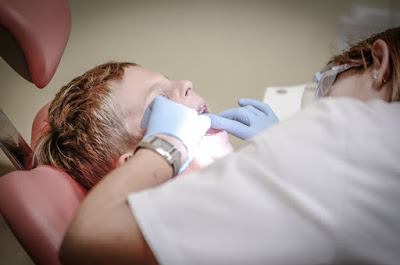You’re chatting with other parents while the kids are having fun in the bouncy castle. All of a sudden, everyone is looking at you and you can hear the unmistakable sound of your son sobbing in pain. He’s hit his front teeth on another girl’s head and one of his beautiful, brand new permanent teeth has been knocked out.
While you try to comfort your wet-faced, bloody son, one of the parents tells you to put the tooth in a glass of cow’s milk. Cow’s milk? That seems like it has to be an old wives tale. (It’s not.) One thing you do know is that you need to get him to an emergency dentist as soon as possible.
Dental emergencies happen. Knowing what to do when one occurs can mean the difference between your son keeping and losing his tooth. (And we all know that those adorable, toothless grins don’t melt hearts forever).
A Few Common Dental Emergencies and How to Handle Them
It’s good to have a dentist on speed dial. Pain and broken teeth can happen at any time and can bring even the most reluctant people to the dentist.
Knocked out tooth - Kids rough house, teenagers play sports, and adults take a “YOLO” approach to learning how to skateboard. When a tooth gets knocked out, pick it up by the crown (not the root), gently rinse with water, and try to gently push it back into the socket. If this isn’t possible, place it in a glass of milk and call your dentist.





